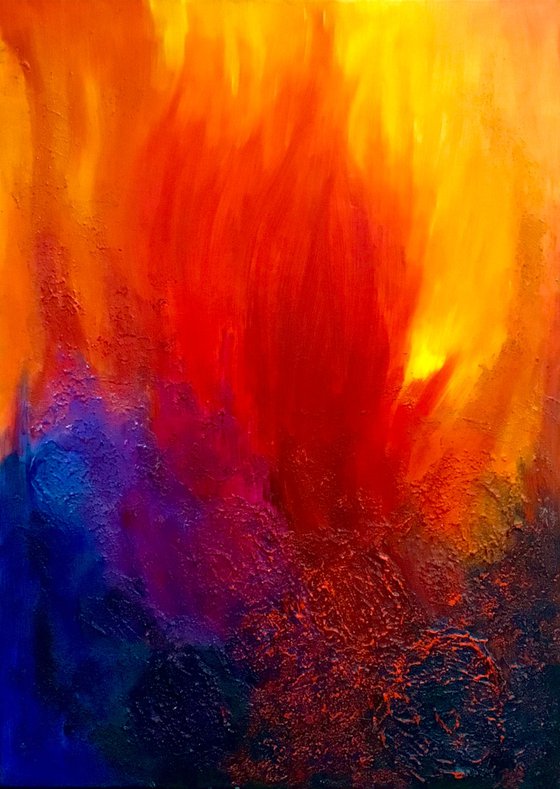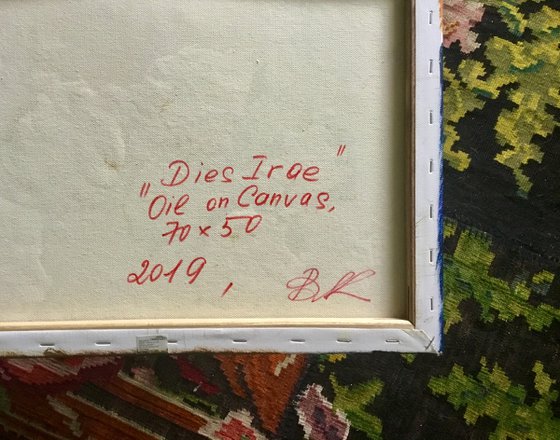- By medium
- By subject
- By budget
- Sales
- Gift cards
- Discover all art
- Artists
- Editors’ picks
- Ideas
Original artwork description:
The Requiem is close in style to Verdi's late operas, first of all to Aide, which was being created at the same time. This is especially true of the numerous ariosos and ensembles - duets, tercets, quartets - with a typically Italian opera cantilena. The large orchestra not only accompanies the singers but also draws colorful pictures.
This is the second part, Dies Irae (The Day will appear in an angry force), built on the change of acutely conflicting episodes of the Last Judgment, full of confusion, horror, and supplication. It is opened by the pictorial whirlwinds of death (choir and orchestra), which are replaced by menacing rolls of 4 trumpets behind the stage and in the Tuba Mirum orchestra (the trumpet will ring for us).
One after the other, 3 lyrical episodes follow the light, calm female duet Recordare (Oh, remember, Jesus), the tenor Ingemisco's arioso sounding completely in an operatic way (I sigh, with a sinful resemblance) and the stately mournful bass solo Confutatis (Judgment pronounced to the shamed). The quartet with the choir Lacrimosa (Tearful this day will come), which concludes the second movement, is distinguished by a heartfelt melody of amazing beauty, rare even for such a melodist as Verdi.
Materials used:
Oil Canvas
Tags:
#red #yellow #violet #fire #requiem #verdi #lacrimosa #recordare #colorful pictures #dies iraeDIES IRAE (2019) Oil painting
by Vera Klimova
3 Artist Reviews
£506.56
- Oil painting on Canvas
- One of a kind artwork
- Size: 50 x 70 x 2cm (unframed)
- Ready to hang
- Signed certificate of authenticity
- Style: Abstract
- Subject: Abstract and non-figurative
Loading
Original artwork description
The Requiem is close in style to Verdi's late operas, first of all to Aide, which was being created at the same time. This is especially true of the numerous ariosos and ensembles - duets, tercets, quartets - with a typically Italian opera cantilena. The large orchestra not only accompanies the singers but also draws colorful pictures.
This is the second part, Dies Irae (The Day will appear in an angry force), built on the change of acutely conflicting episodes of the Last Judgment, full of confusion, horror, and supplication. It is opened by the pictorial whirlwinds of death (choir and orchestra), which are replaced by menacing rolls of 4 trumpets behind the stage and in the Tuba Mirum orchestra (the trumpet will ring for us).
One after the other, 3 lyrical episodes follow the light, calm female duet Recordare (Oh, remember, Jesus), the tenor Ingemisco's arioso sounding completely in an operatic way (I sigh, with a sinful resemblance) and the stately mournful bass solo Confutatis (Judgment pronounced to the shamed). The quartet with the choir Lacrimosa (Tearful this day will come), which concludes the second movement, is distinguished by a heartfelt melody of amazing beauty, rare even for such a melodist as Verdi.
Materials used:
Oil Canvas
Tags:
#red #yellow #violet #fire #requiem #verdi #lacrimosa #recordare #colorful pictures #dies irae14 day money back guaranteeLearn more












